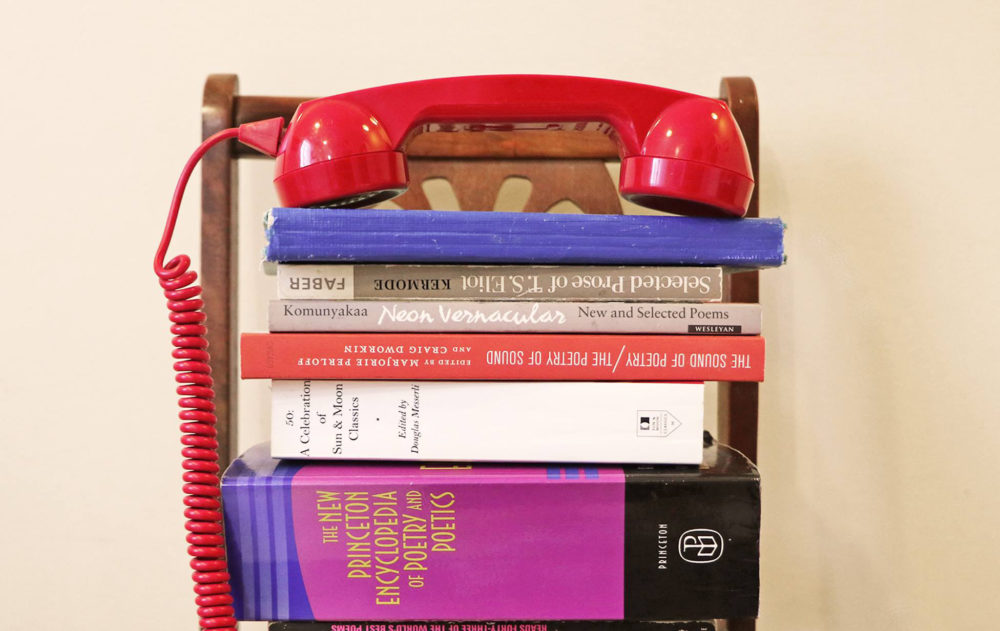Third Space Gallery presents artist Annie Wong’s pop-up research centre at the Saint John Free Public Library January 9-12, 2017.

Saint John’s Third Space Gallery continues to bring unique arts experiences to the city with its latest, The Centre for Communication and Poetry Research.
As explained in the Gallery’s latest media release, The Centre for Communication and Poetry Research is a pop-up research centre interested in proving the hypothesis that the underlying purpose of communication is to elicit the feeling of someone else’s attentive presence. Contrary to the priority given to the exchange of information, the centre is interested in how the linguistic ambivalence of poetry combined with the utility of telecommunication can privilege the act of listening over the act of interpretation.
The Centre for Communication and Poetry Research will set up shop at the Saint John Free Public Library where the artist will engage strangers over the telephone to read them poems. The call centre will run for four days, conducting six hours of research each day. During this time, drop-in research and visiting hours are open to the public to conduct calls with one-on-one guidance from the artist. Each research day concludes with a public workshop about how to make a telephone call based on the Centre’s official manual, equipped with scripts, instructions, and warm-up exercises.
The project was conceived and created by Ontario-based multidisciplinary artist, educator and writer Annie Wong whose work has been presented by various festivals and galleries including the Art Gallery of Ontario, Nuit Blanch, and the Modern Literature and Culture Research Centre. Wong is currently Broken Pencil Magazine’s Education Coordinator where she works with young people to create a variety of zine-based art.
“I would say that line of thought [for this project] comes from my interest in forms of phatic communication like handshakes, salutations, and those forms of communication where the exchange is mostly interpersonal, as ways of building intimacy and relationship without necessarily ‘getting to knowing each other’,” said Wong. “Reading poems over the telephone to strangers, I believe builds a kind of fleeting electronic intimacy that only the disembodied voice of the telephone can produce. Yet this kind of intimacy should not be mistaken as the product of poetry. In the project, poems kind of work like a worm on the hook. A poem in itself can be a beautiful thing. But I am more interested in how sharing poetry in the transient space of the telephone can generate intimacy, and by extension empathy, by the simple yet generous act of listening, speaking, and sharing space, even if immaterial.”
The Centre for Communication and Poetry Research | Saint John Free Public Library | January 9-12, 2017 | View Event
Closing Reception and Artist Talk | January 13, 2017 | 7 p.m. | Third Space Gallery, 89 Canterbury Street, Suite 407, Saint John, NB




